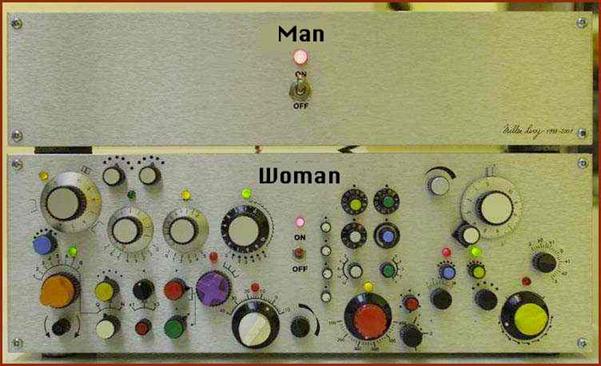 This post is not about what you think. It really is about business. First a little background. I started a company in 1991 when I lived in Texas. Two years later I moved to Connecticut but the company stayed Texas. I’ve run it long-distance as a “remote control CEO”. I had to systemize the business to work like this and that’s what laid the ground work for my coaching other entrepreneurs to systemize their companies. About four years ago my wife took over and has done a wonderful job. She is much more of a people person than I. Here’s an illustration of that.
This post is not about what you think. It really is about business. First a little background. I started a company in 1991 when I lived in Texas. Two years later I moved to Connecticut but the company stayed Texas. I’ve run it long-distance as a “remote control CEO”. I had to systemize the business to work like this and that’s what laid the ground work for my coaching other entrepreneurs to systemize their companies. About four years ago my wife took over and has done a wonderful job. She is much more of a people person than I. Here’s an illustration of that.
We have a system for tracking our sales efforts (number of calls, follow ups, contracts sent out etc) and our results. One of the guys in our fulfillment department quit and they decided not to replace him, figuring the people in the front office could fill in. This month, sales are down 33% from last month. That sounds worse than it is: we keep client for years and only get about 10 new ones a month (and we generally loose about 10 as well) so sales went from 9 to 6 and it so happens we only lost 6 so we’re even. But still 33% down is not the way you want to go.
My wife could tell from the sales tracking system that the number of contracts sent out was about the same as last month but the number of follow up calls was way down. And she could tell from the timing of when the calls were made (or not) that it’s because the people in the front who are now filling in in the back are letting the follow up calls fall through the cracks.
So what does she do? She goes over these numbers with our general manager and says basically “You see the problem? I’ll give you the month of April to fix it and if sales don’t come up we’ll have to do something different”
What would I have done? As a typical entrepreneur, I would have said that it’s OBVIOUS that the guy who left needs to be replaced and I would have been frustrated as hell that somebody didn’t see this coming half way through the month and waited till I saw it at the end of the month and I would have wanted changes made right now.
Which way is right?
What? You think I’m going to say my wife is wrong – all over the internet? I may be dumb but I’m not crazy. And I like to think that I’m not a typical entrepreneur anymore. There are three things to think about.
1. A typical entrepreneur’s approach only works if you’ve instructed people how to analyze the numbers and told them that it’s their job to do so and how frequently you want them to do this and how to come up with solutions to the problems they uncover when they analyze the numbers. If you’ve done that and put people who have that skill in the right positions then you have the “right” to be frustrated when they don’t do their job. In my experience most entrepreneurs don’t do any of this, but they still want the results of having done it.
2. My wife has never done this, and given the way responsibility is assigned in our company she has no intention of doing it. She’s keeping the job of analysis and problem solving on her desk. So her way is perfectly suited for our company – even though it’s slower than what a more typical entrepreneur might want.
3. I’ve given you a bit of a red herring by talking about the typical entrepreneur the way I have. If my experience of coaching entrepreneurs since 1994 has given me insight to what’s typical, the typical ones don’t even start to measure things to the degree that we do. So they would have no idea why sales were down. They’d just be upset when they saw the decline. So what appears to be slow as I tell this story (taking a month to see the problem and another month to fix it) is actually fast compared to what usually happens. (A month to see the problem and several months fuming about it while casting about for a fix – and maybe never uncovering the real cause). Because we’ve always measured a lot of stuff in our company, and always looked to find the root cause of any problems, not just the immediate solution, I don’t think I’m the typical entrepreneur.
Takeaways:
- You need to measure the right stuff. At first you don’t know what’s the right stuff so measure more than you think you need.
- Make sure your expectations for people are in line with their skill set, and what you’ve trained them to do. They can’t read minds.
Technorati Tags: management, entrepreneur, small business